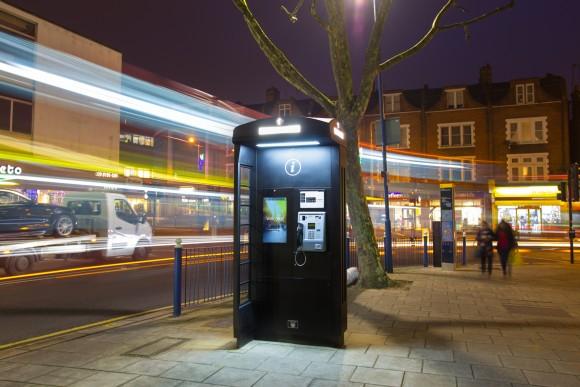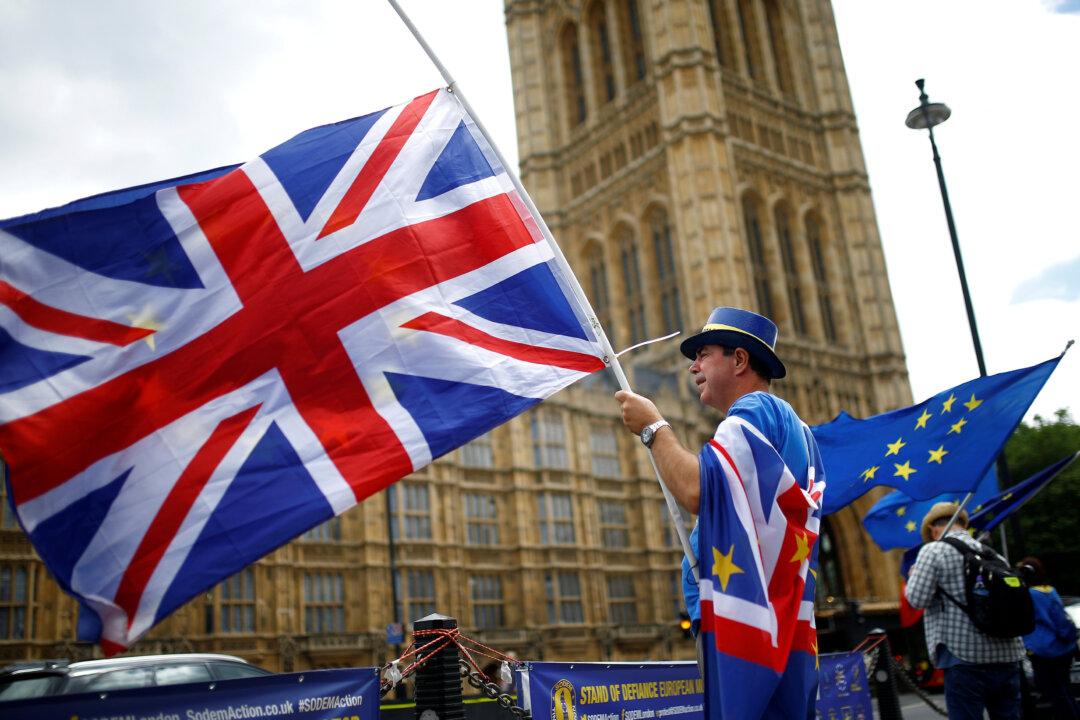“RED MENACE Lord Alan Sugar involved in scheme to replace much-loved ‘eyesore’ red phone boxes with BLACK ones,” screamed The Sun.
“London’s iconic red phone box has been upgraded – and there’s a controversial change,” grumbled the Mirror.
But behind both of these headlines is a different story – and it’s not just that the red phone boxes aren’t actually going to be replaced by black ones.
There are two companies that own phone boxes in the UK: British Telecom and New World Payphones. Both companies are “revolutionising” their boxes to offer high-speed public Wi-Fi and digital screens.
A BT spokesperson said they “may possibly” be replacing some of the classic disused red phone boxes with their angular Links kiosks. “We are not sure yet, it depends on the discussions with the authorities,” the spokesperson said. BT own 45,500 public payphones, of which 8,000 are red.
A spokesperson from advertising company Clear Channel, owners of New World Payphones, said that the majority of their 1,700 payphones are modern glass and steel designs, while some are classic-style phone boxes painted black.
These phone boxes (that are not red) are being replaced by more modern black payphones, and most offer Wi-Fi provided by Virgin Media. They are manufactured by Lord Sugar’s company, Amscreen. A hundred have already cropped up in London, with 500 more planned to be installed in London boroughs this year. They promise to plant a tree for each new phone box installed.
Regardless of which competing company is behind the new phone boxes, both offer public Wi-Fi.
This comes with its own set of concerns, according to Ed Johnson-Williams of Open Rights Group, which campaigns for online privacy.
“These new phones have to ensure they respect the privacy of people passing by,” he said.
“You can’t just collect data from random people walking by without asking them. When you do ask them you have to make sure you are clear about what you are doing, rather than burying it half way down thousands of terms and conditions.”
Both BT and Virgin Media confirmed that they do not collect media access control (MAC) addresses from passers-by who are not connected to their Wi-Fi network. MAC addresses are unique numbers assigned to any device that is connected to the internet. Companies can track devices using this number to analyse customers’ habits.
In the UK, while collecting anonymised data is legal, Johnson-Williams said “it’s an area that has not been properly dealt with by the law yet”.






